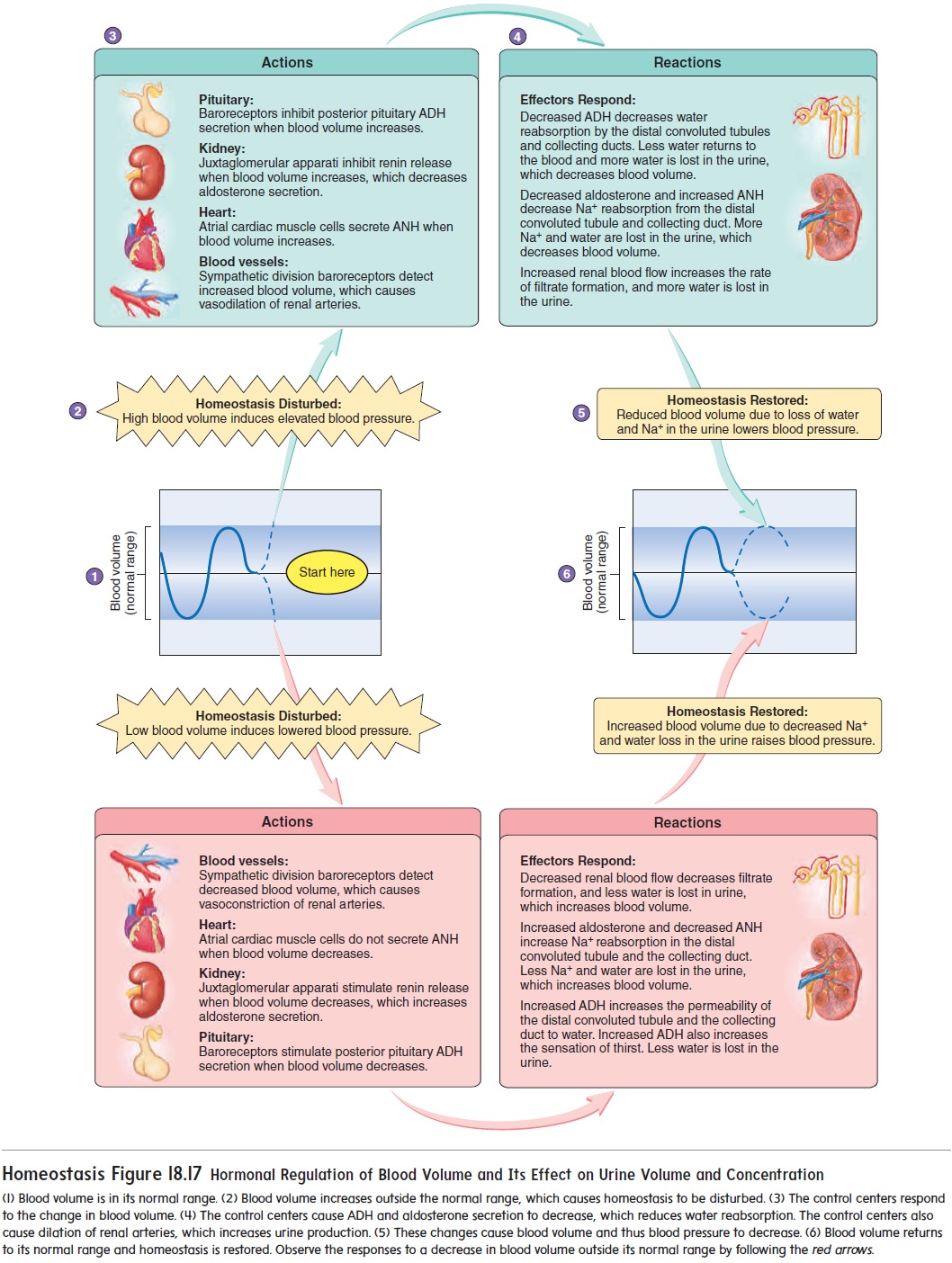Chapter: Essentials of Anatomy and Physiology: Urinary System and Fluid Balance
Regulation of Filtration - Urine Production
Regulation of Filtration
The blood pressure within the glomerular capillaries is fairly constant because the afferent and efferent arterioles either dilate or con-strict to regulate the blood pressure there, even though the systemic blood pressure may fluctuate substantially. Also, the concentration of blood proteins and the pressure inside the Bowman capsule are fairly constant. As a consequence, the filtration pressure and the rate of filtrate formation are maintained within a narrow range of values most of the time.

However, the filtration pressure does change dramatically under some conditions. Sympathetic neurons innervate the blood vessels of the kidney. Sympathetic stimulation constricts the arteries, causing a decrease in renal blood flow and filtrate formation in proportion to the intensity of the stimulation. It is possible to decrease filtrate forma-tion to only a few milliliters per minute. Consequently, only a small volume of urine is produced (see figure 18.17). For instance, during cardiovascular shock, the filtration pressure and filtrate formationfall dramatically. One of the dangers of cardiovascular shock is that the renal blood flow can be so low that the kidneys suffer from lack of O2. If the O2 level remains too low for a long enough time, permanent kidney damage or complete kidney failure results. One important reason for treating cardiovascular shock quickly is to avoid damage to the kidneys. Other conditions, such as intense physical activity or trauma, also increase sympathetic stimulation of renal arteries and decrease urine production to very low levels. On the other hand, increased blood pressure decreases sympathetic stimulation of renal blood arteries, and urine volume increases (see figure 18.17).
In addition to the effects of blood pressure on filtration pres-sure, decreases in the concentration of plasma proteins, caused by conditions such as inflammation of the liver, where most of the blood proteins are produced, increase the filtration pressure. The increased filtration pressure causes the filtrate and urine volume to increase.
Related Topics